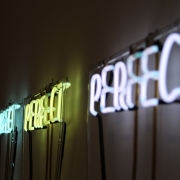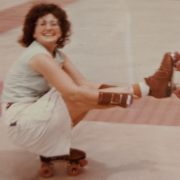One of my favorite teaching stories from the Jewish tradition is about this prayer. Hillel was a highly respected and impactful scholar and teacher. One day, a smart aleck student challenged him, saying “If you’re such a great man, I dare you to recite the entire Torah while standing on one foot!”
Hillel smiled, calmly raised one foot, said “Do unto others as you’d have others do unto you. The rest is commentary,” and put his foot back down.
As we begin the big exhale from yesterday’s verdict in the trial of George Floyd’s killer, and the acknowledgement that this was a significant yet small beginning, this prayer keeps resonating.
In the past few months I’ve added a morning prayer practice in Hebrew to my meditation time. It’s easy at times to just skip along, stumbling as I re-familiarize myself with this ancient language I learned long ago.
But I work at slowing myself down and teaching myself the meaning of the prayers, going back and forth from Hebrew to English, noticing words I do know and identifying what others might be.
And each time I come to these three words – v’ahavatah l’rayahchah kamochah; love your neighbor as yourself – I pause.
I breathe.
I feel into what these words point us towards that seems to be one of the hardest things for humans to truly do.
Now, I realize that Hebrew may be as unfamiliar to you as Swahili or Mandarin. Still, I encourage you to read that transliteration out loud to yourself several times. Because Hebrew is a vibrational language that works deep in the soul and nervous system, much like Sanskrit chants you might enjoy during yoga.
Compassion is key to living a more balanced, sane, and holy life. And this prayer is the very heart of compassion.
It’s the work of our lives. Love yourself. Love your neighbor. Pray for peace. Do what you can to be able to balance on one foot as you focus on the biggest truths.









